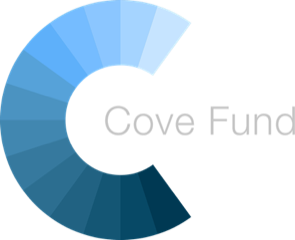Common Red Flags in Venture Capital Due Diligence
At Cove Fund, due diligence is a rigorous process of evaluating a startup’s viability before investment. Identifying red flags during this phase can prevent costly missteps. Here’s an in-depth look at common warning signs that our Fund Managers watch for during the process.
1. Unrealistic Market Size Assumptions
A startup’s total addressable market (TAM) must be substantial enough to justify venture investment. Overestimating market size or lacking credible data can signal a lack of market understanding. Investors seek evidence of a significant and reachable market.
2. Overvaluation
Startups with inflated valuation expectations, unsupported by traction or revenue, raise concerns. An overvalued company may struggle to meet growth expectations, leading to future funding challenges.
3. Uncoachable Founders
Founders who resist feedback or display arrogance can hinder a company’s adaptability. Investors value coachability and a willingness to learn, as these traits are crucial for navigating startup challenges.
4. Weak Go-to-Market Strategy
A vague or underdeveloped plan for reaching customers indicates a lack of strategic planning. Investors look for clear customer acquisition strategies, understanding of sales cycles, and realistic marketing plans.
5. Lack of Product-Market Fit
Startups must demonstrate that their product addresses a real customer pain point. Without evidence of demand or user engagement, investors may doubt the product’s viability.
6. Poor Team Dynamics
A founding team lacking domain expertise or exhibiting internal conflicts can jeopardize execution. Investors assess team cohesion, complementary skills, and leadership capabilities.
7. Unrealistic Financial Projections
Financial forecasts should be grounded in data and reasonable assumptions. Overly optimistic projections without substantiation can undermine credibility.
8. Chasing Multiple Markets
Startups attempting to tackle several markets simultaneously may lack focus. Investors prefer a concentrated approach with a clear target market and strategy.
9. Communication Issues
Inconsistent or delayed communication during due diligence can reflect operational inefficiencies. Timely and transparent communication is essential for building investor trust.
10. Lack of Financial Discipline
Disorganized financial records or opaque accounting practices raise red flags. Investors expect transparency and sound financial management.
At Cove Fund, we understand that early-stage startups are still figuring things out — you won’t have every answer, and that’s okay. What matters is that your plans are grounded in sound assumptions, not wishful thinking. In diligence, we’re not looking for perfection; we’re looking for clarity, focus, and a thoughtful approach to solving real problems. Building from solid assumptions gives us confidence that you’ll adapt, learn, and execute effectively as your company grows.
About Us
Cove Fund is a seed-stage venture capital fund based at UC Irvine’s Beall Applied Innovation, a hub for Southern California entrepreneurs and investors. We invest in early-stage technology and life science companies with differentiated products that address large markets and can achieve major milestones with seed funding.
Since our inception, we have invested over $20 million and are actively deploying capital from our $24 million third fund. If you are a Southern California startup seeking funding — or an investor interested in becoming a limited partner — visit us at www.covefund.com.
